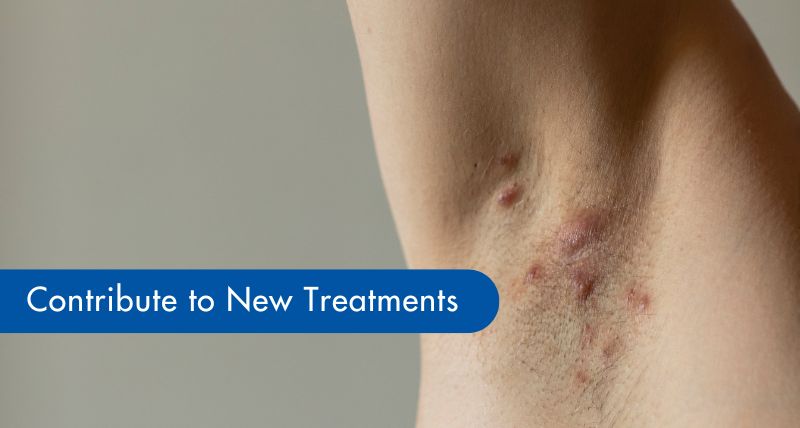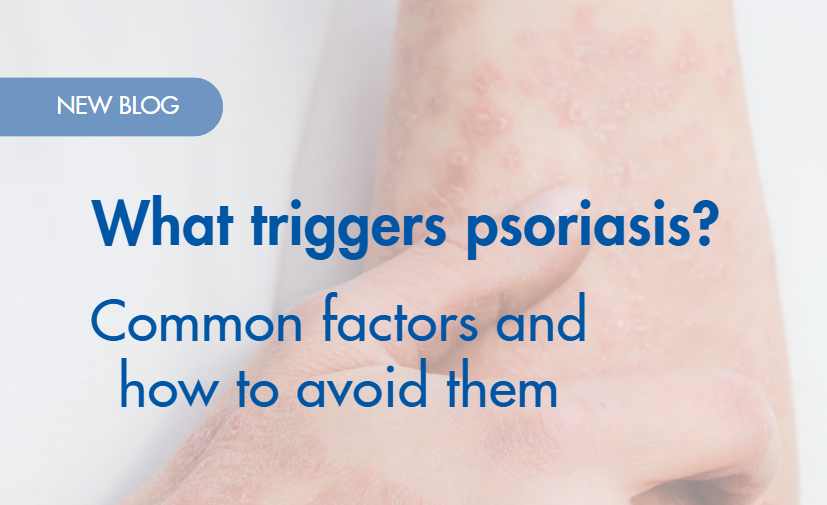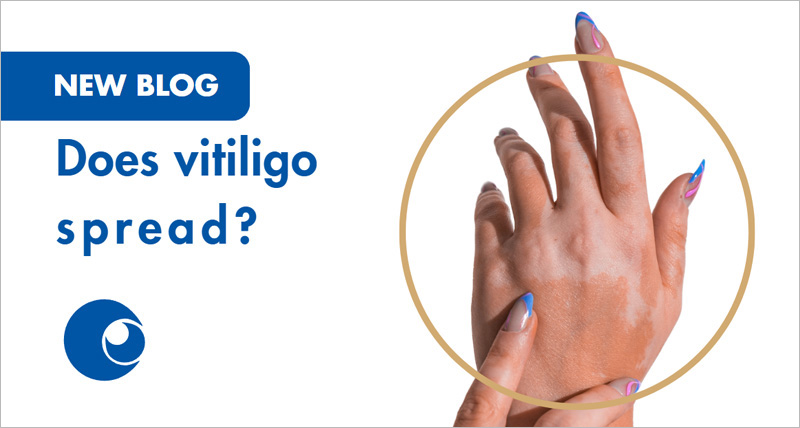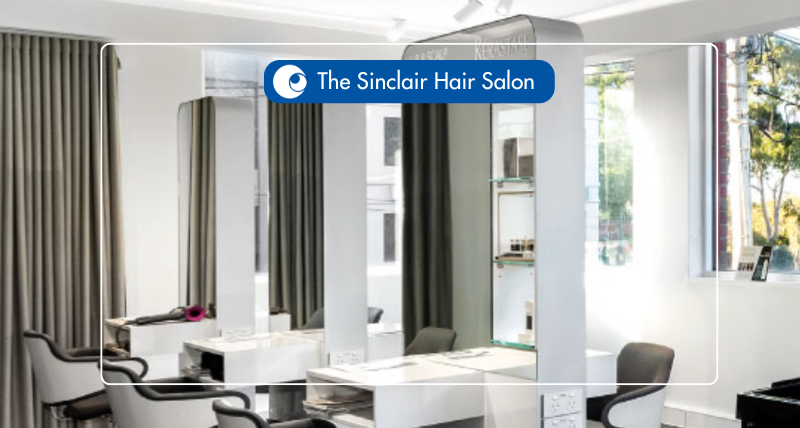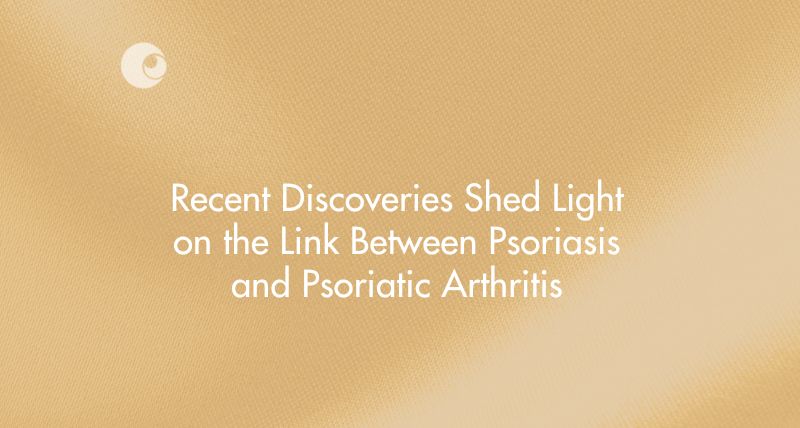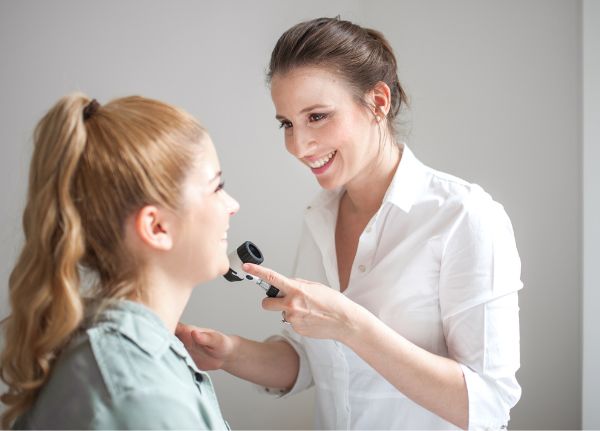Cathryn was 14 when she first noticed a small boil on her inner thigh. Eventually, it went away but others appeared over the next few years. When she was 25, though, things suddenly worsened. Over a three-week period, her groin, buttocks, and the area under her breasts became covered in swollen, raised abscesses that she found painful and embarrassing.
Cathryn was eventually diagnosed with hidradenitis suppurativa (HS). Struggling with fatigue and pain, she notes that,
“HS presents on the skin but it can really take a toll on the whole body emotionally and physically…If I need to cancel plans because I’m flared up and not able to walk or the skin is too sore, then so be it!
The first few months hurt me mentally. I was an emotional mess, planning my life around my skin. I had to make sure I had the right type of loose-fitting clothing so as not to irritate the skin.”
What is hidradenitis suppurativa and how does it affect the skin?
Hidradenitis suppurativa –is a chronic inflammatory skin condition. It leads to boil-like bumps and abscesses that most commonly appear in the hair roots near sweat glands under armpits or breasts, or in the groin area.
Those bumps can become infected causing pockets full of pus to form under the skin. When they break open, they may have an unpleasant odour. They can also cause scarring. Over time, tunnels might form under the skin, connecting the lumps.
Who is at risk of HS?
HS affects about 1% of the population. It usually begins between puberty and the age of 40, most commonly onset is in the early 20s. Women are three times more likely to develop HS compared to men.
We are not yet sure what causes HS but suspect it involves an interplay between genes, hormones, and the environment.
You are more likely to develop HS if you are:
- Female
- Overweight
- Prone to acne
- Related to someone with HS.
HS is not contagious and is not linked to personal hygiene. It is unrelated to how frequently you wash or shave under your arms.
How does HS affect you psychologically?
As with other skin conditions, HS can have a significant psychological impact.
It may involve living with:
- Painful abscesses that can affect your sleep, mobility, or sex life
- Flare-ups that interrupt your plans, social or working life.
- Fatigue
- Odours that cause anxiety and embarrassment
- Frustration – HS is an ongoing, persistent, and challenging condition.
While treatment for HS focus’ on managing your skin, it is vital to address your mental health too. Your doctor may refer you to a psychologist or online support group.
Try to find support from your family and friends too. Let them know what it is really like to live with HS and ask for their understanding when you are finding it particularly difficult.
How is HS treated?
There is no single treatment for HS. Rather it involves working with your dermatologist to find a blend of treatments that relieve your symptoms.
Treatment options include:
- Lifestyle changes – reducing stress, losing weight (if necessary), and stopping smoking may help
- Antibacterial washes
- Topical or oral antibiotics
- Topical or oral steroids
- Immunosuppressive treatments
- Biological agents – infliximab and adalimumab
- Retinoids (vitamin A-like drugs)
- Photodynamic therapy
- Laser hair removal
- Plastic surgery
Join a clinical trial for HS
Clinical trials help us to find new treatments for difficult conditions like HS. Joining a clinical trial can be a rewarding experience that may help you:
- Learn more about your condition
- Put your experience to good use by contributing to advancements in care for your condition
- Gain access to new treatments before they are widely available
- Receive extra support and care from trial staff who understand your health needs.
Sinclair Dermatology has conducted more than 100 clinical trials to investigate new treatments for dermatological conditions. Several have gained TGA approval and been made accessible to patients.
Right now, we are running two clinical trials for HS.
HS in adults
If you are over 18 and have been diagnosed with moderate to severe HS at least 3 months ago, you may be eligible to join our clinical trial of a new oral medication for HS.
If you join this trial, you may receive the new treatment or you may receive a placebo (inactive) treatment. You will need to visit our clinic about 9 times over 62 weeks. We will reimburse you for your time and travel.
HS in adolescents and adults
Our second clinical trial is open to HS patients aged over 12 who have had HS for at least 6 months. Again, you will receive either the new medicine being investigated or a placebo.
If you join this trial, you will need to visit the clinic about 24 times over about 104 weeks. We will reimburse you for your time and travel.
If you would like to help us, find new treatments for HS, then we encourage you to consider joining a clinical trial.
How can we help?
Sinclair Dermatology is a leading dermatology centre and our doctors are skilled in supporting patients with HS. We offer innovative, evidence-based treatment options to ease your symptoms and improve your quality of life.
If you would like our help, please contact us.
Disclaimer
All information is general and is not intended to be a substitute for professional medical advice.
References
- British Skin Foundation, Cathryn tells us about life with hidradenitis suppurativa, https://www.britishskinfoundation.org.uk/blog/living-with-hidradenitis-suppurativa, [Accessed 21 May 2024]
- DermNet, Hidradenitis suppurativa, https://dermnetnz.org/topics/hidradenitis-suppurativa, [Accessed 21 May 2024]
- WebMD, Hidradenitis suppurativa, https://www.webmd.com/skin-problems-and-treatments/hidradenitis-suppurativa, [Accessed 21 May 2024]
- Australasian College of Dermatologists, Hidradenitis suppurativa,https://www.dermcoll.edu.au/atoz/hidradenitis-suppurativa/, [Accessed 21 May 2024]
- Australian Clinical Trials, What you should know about taking part in a clinical trial, https://www.australianclinicaltrials.gov.au/participants/what-you-should-know#, [Accessed 21 May 2024]

